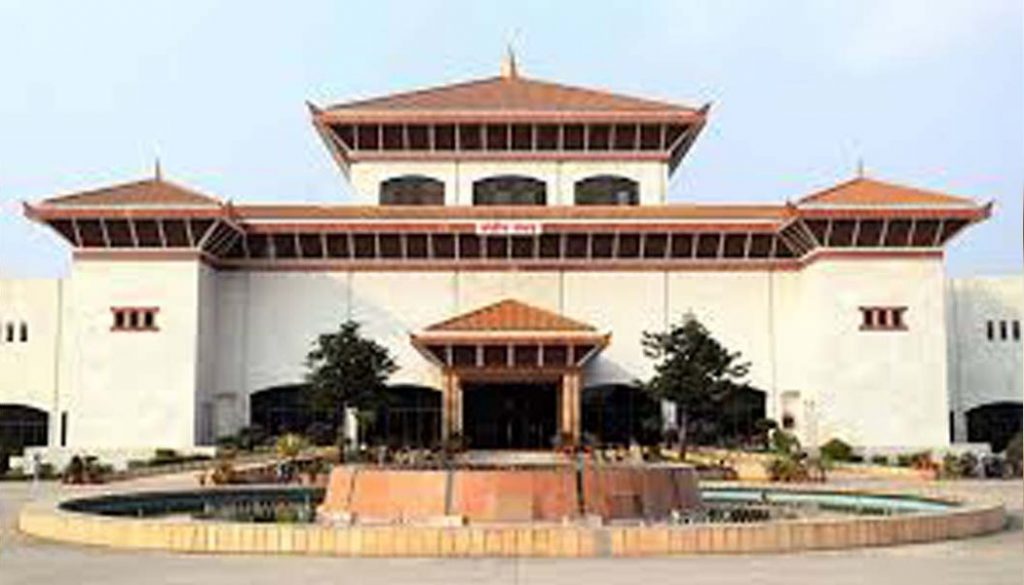The sudden decision taken by Nepal’s Prime Minister KP Sharma Oli to dissolve Parliament on Sunday has plunged the Himalayan country into a new phase of political turmoil. Though the crisis is due to an internal power struggle within the Nepal Communist Party (NCP), the development has supposedly rattled China which is trying to encircle India with the help of Nepal and Pakistan. China has, for the past few months, been striving to keep the NCP united so that Nepal remains under its orbit of influence. Earlier this month, China’s Defence Minister Wei Fenghe and a number of senior diplomats and leaders of the Communist Party of China (CCP) visited Nepal. They met top leaders of the NCP, including Oli and his co-chair Pushpa Kamal Dahal, aka Prachanda, advising them to resolve their differences and remain united.
NCP came into being in 2018 when Oli’s Communist Party of Nepal (Unified Marxist-Leninist) merged with Prachanda’s Communist Party of Nepal (Maoist Centre). But, the relations between the two factions of the NCP soured when Oli pushed for an amendment in order to get a free hand in running the government.
Oli has been under pressure to withdraw the ordinance issued on December 15 to amend the Constitutional Council Act (Functions, Duties and Procedures), 2010. He had got it endorsed by the President the same day. The ordinance, which states that a majority of the Council members can hold meetings, was issued following postponement of a meeting of the Constitutional Council because Speaker Agni Sapkopta refused to attend. The Speaker is one of the members of the Council, headed by the PM, which makes recommendations for key appointments including its Constitutional bodies, judiciary and foreign missions.
Oli is believed to have gone ahead with issuing the ordinance to checkmate the attempt by his rival faction to place before the NCP’s Standing Committee a document listing charges of corruption and authoritarian behaviour against him. With the help of the ordinance he can appoint a man of his choice to go into charges of corruption against his rivals. This is why the Prachanda faction-dominated Standing Committee has early last week instructed Oli to withdraw the ordinance. But, Oli didn’t oblige the faction and equivocated on the issue.
For Oli, dissolution of Parliament is a gamble since the country’s Constitution has no such provision and his action is going to be challenged in the Supreme Court. However, an opinion is also gaining ground that there are ways to circumvent the law. President Bidhya Devi Bhandari’s office said in a statement the next vote will be held on April 30 and May 10 as per Oli’s recommendation.
This turn of events appears to have put China on the back foot. China’s mouthpiece, Global Times, carried a news hinting that India had a hand in Oli’s ‘coup’, though its Foreign Ministry spokesman Lu Kang put up a brave front saying in a statement “the friendship and mutually beneficial cooperation between China and Nepal will not change due to the fall of the Oli government. China and Nepal share weal and woe.”
During his recent visit to China, Oli signed the Transit Transport Agreement (TTA) to improve the connectivity between Nepal and Tibet to end decades-old dependence on India for daily supplies. Beijing, in a strategic move, has also agreed to extend the train link in Tibet to Nepal to improve connectivity by road and rail.
The move to neutralize China’s growing influence on Nepal could have got a boost during the visits, in quick succession, to Nepal by Indian Army Chief Manoj Mukund Naravane, foreign intelligence (Research and Analysis Wing) chief Samant Goel and Foreign Secretary Harsh Vardan Shringla. However, India’s responses are invariably delayed and give an impression of immature knee-jerk reactions to a much deeper problem. Diplomacy, especially the international 21st century model, will not function in out-dated mode. India has to learn to be proactive, not reactive.
